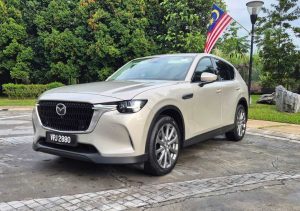Major carmakers scale back on electric cars and invest in fossil fuel tech
By DPA | 11 September 2024
HAMBURG: Several leading carmakers are backing away from ambitious electric car targets, saying slow sales and a lack of charging stations will leave room for a few cars that still need fossil fuels.
One of the most prominent among them is Sweden-based Volvo Cars, which is majority-owned by China's Geely Holding. Earlier in September, the company cancelled its plans to become an all-electric car manufacturer by 2030.
Instead, some hybrid models will still be on offer at that time. "We firmly believe that our future is electric," said Volvo chief executive Jim Rowan. "However, it is clear that the transition to electrification will not be linear."
Volvo is not alone in altering its strategy to keep pace with customer hesitation when it comes to buying a new electric car. Toyota said it intends to remains loyal to the combustion engine and is positioning itself more broadly than ever.
"CO2 emissions are our enemy - not a specific combustion engine," chief executive Akio Toyoda recently said, arguing that combustion engines are far from old hat. Toyota cites its "multi-pathway strategy" which includes electrics and ICE-powered vehicles.
As a global car manufacturer, the firm said it does not produce solely for wealthier markets like Germany, with a greater focus on electric cars.
The Japanese maker said it must instead satisfy customer needs around the world. Last year, the car manufacturer sold 11.2 million vehicles in over 170 markets worldwide.
Global car companies using unified model platforms or many models also need to keep an eye on car markets in developing countries, where electrification is moving at a much slower pace.
Consultancy firm Mordor Intelligence forecasts growth in electromobility in sub-Saharan Africa as a whole, but while the Gulf States have launched strong electrification initiatives, the trend elsewhere is still weak.
In South Africa, for example, the proportion of purely electric vehicles is far below 1%.
Advocates of electric cars are hopeful they will help reduce emissions in cities where poor air quality from heavy traffic has been linked to lung diseases and a shorter life expectancy.
However, the vehicles are beyond the financial means of most people, added to which the mining of the minerals used in their batteries poses serious risks for the environment, reports the United Nations body on trade and development, UNCTAD.
Over at Audi, the company has unveiled the successor to the A4, the new A5 and it will be available exclusively with combustion engines.
Audi has opted for mild hybrid technology for the drive system in the new A5. Although this technology allows a certain degree of electrification, it remains limited in comparison to plug-in hybrids and battery-electric vehicles. Audi has pledged to stop making ICE cars altogether from 2026.
Meanwhile, car buyers put off by high EV prices and scarce charging facilities are increasingly demanding cars with combustion engines. Germany's Autobild car magazine reports. This is partly due to the widespread scrapping of state subsidies, which bring down the price of still-expensive EVs.
In 2024, the trend in Germany is increasingly moving towards petrol, diesel and hybrid cars: the market share of electric cars is currently only 12.6% (January to August 2024), compared to 18.4% in 2023. In addition, 87% of all new cars in Germany have a combustion engine on board that runs on petrol or diesel.
Like other manufacturers, BMW is now looking for a way out of the ICE moratorium and is preparing to continue offering and selling cars with combustion engines in Europe after 2035.
"In our view, the ban on combustion engines was naive and needs to be adjusted," chief executive Oliver Zipse recently told Autobild.
BMW's international business partners would ask why the EU is banning a technology in which Europe has the greatest competitive advantage and which still offers so much potential thanks to low CO2 fuels. In particular, Zipse urges for the EU Commission to do more for the production of synthetic so-called e-fuels.
Petrol and diesel engines are to be offered in the BMW X series SUV well into the next decade. BMW said it was not yet possible to predict which drive concept will be in demand by the majority of BMW customers between 2023 and 2035.
Meanwhile, cars from budget manufacturer Dacia are set to be equipped with combustion engines for many years, in contrast to the parent company Renault and its strong electric strategy.
Dacia does not want to say goodbye to fossil fuels as a means of propulsion until 2035, whereas Renault wants to go all-electric as early as 2030.
Ford also seems to be having doubts about plans to operate as a pure manufacturer of electric cars from 2030. Provided demand holds up, Ford said it will continue to build combustion and hybrid cars for longer, he said.
Tags
Autos News
Reviews

5.8
Kymco AK550 Premium: Smart easy rider

BYD Seal 6 Premium: Sweet deal, generous kit, sensible prici...

8.7
Mazda CX-80 2.5G PHEV AWD High Plus: Upmarket upgrade

Proton X50 Flagship: Tuned for success

6.6
Triumph Trident 660: Beautifully balanced package

8.4
Mercedes-AMG GLA 35 4Matic: Never a dull moment

Lamborghini Urus SE: Ultimate control

Mazda CX-60: Moving on up
Videos

Free & Easy Media Test: Latest Proton X50 Flagship to Kuanta...

Zeekr Space Sunway City Video

Honda Civic Type R Ultimate Edition: Last 40 Units for Europ...
